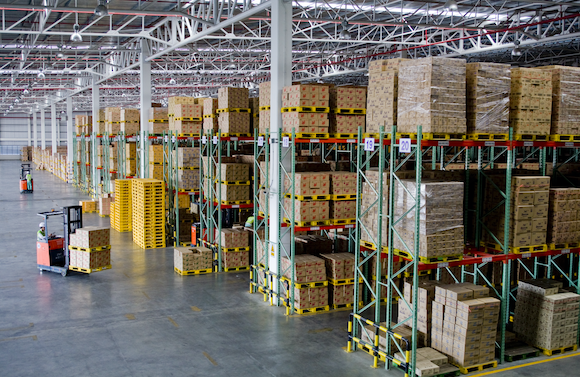Your ERP Investment: Building Tomorrow’s Distribution Success Today
In the fast-paced world of distribution, standing still means falling behind. While competitors struggle with outdated systems and manual processes, forward-thinking distributors are making a strategic choice that will define their next decade of growth: investing in modern cloud ERP software.
Beyond Software: An Investment in Strategic Transformation
When distributors evaluate ERP solutions, they often focus on immediate pain points—streamlining inventory management, automating order processing, or improving customer service response times. While these benefits are substantial, they represent just the surface of what a comprehensive ERP investment delivers.
The real value lies in transformation. Modern cloud ERP systems like Bizowie don’t just solve today’s operational challenges; they create the foundation for tomorrow’s opportunities. This shift from viewing ERP as an expense to recognizing it as a strategic investment fundamentally changes how distributors approach their technology decisions.
The Compounding Returns of ERP Investment
Traditional business investments follow predictable patterns—you invest capital and receive returns over time. ERP investments work differently. They create compounding value that grows exponentially as your business evolves.
Consider data visibility. Initially, your ERP provides better reporting on current operations. Over months, this data reveals patterns and trends previously invisible. Within a year, predictive analytics help you anticipate market shifts. By year two, machine learning capabilities are optimizing your inventory automatically. What began as better reporting has evolved into a competitive intelligence system that continuously improves your decision-making.
This compounding effect extends across every aspect of your operation. Process automation doesn’t just save time today—it creates capacity for tomorrow’s growth. Integrated workflows don’t just reduce errors—they enable you to take on more complex customer requirements. Real-time inventory visibility doesn’t just prevent stockouts—it allows you to optimize working capital for expansion opportunities.
Future-Proofing Your Distribution Operation
The distribution landscape is evolving rapidly. E-commerce integration, omnichannel fulfillment, sustainability reporting, and supply chain transparency are no longer optional—they’re competitive necessities. Distributors operating on legacy systems or cobbled-together software solutions find themselves constantly playing catch-up, investing heavily in workarounds and manual processes just to meet basic market expectations.
Cloud ERP platforms provide the flexibility and scalability to adapt to these changing requirements. When new regulations emerge, compliance capabilities can be deployed quickly. When customer expectations shift, new service models can be implemented without system overhauls. When market opportunities arise, your infrastructure can scale to meet demand.
This adaptability represents insurance against obsolescence. While competitors invest repeatedly in system upgrades, integrations, and replacements, distributors with modern ERP platforms invest once and adapt continuously.
Measurable ROI Across Multiple Dimensions
ERP investments generate returns across multiple business dimensions simultaneously. Operational efficiency improvements typically deliver 15-30% productivity gains within the first year. Inventory optimization often reduces carrying costs by 10-25% while improving fill rates. Customer service improvements drive retention rates higher and enable premium pricing for value-added services.
But quantifiable returns extend beyond operational metrics. Employee satisfaction improves when tedious manual tasks are automated, leading to lower turnover and higher productivity. Customer relationships strengthen when you can provide real-time order status, accurate delivery commitments, and proactive communication about potential issues. Vendor partnerships become more strategic when you can share accurate demand forecasts and collaborate on inventory planning.
Perhaps most importantly, ERP investments create option value. They position your organization to pursue opportunities that would otherwise be impossible or prohibitively expensive. Whether that’s expanding into new markets, launching value-added services, or pursuing acquisition opportunities, modern ERP systems provide the operational foundation necessary for strategic growth.
The Cost of Delayed Investment
While the benefits of ERP investment are substantial, the costs of delay are equally significant. Every month operating on inadequate systems represents lost efficiency, missed opportunities, and increased risk. Competitors making ERP investments today will have significant operational advantages within 18-24 months.
Consider the time value of operational improvements. A distributor achieving 20% productivity gains through ERP automation doesn’t just save money—they reinvest those savings into growth initiatives, creating a widening competitive gap. Meanwhile, distributors delaying ERP investment find themselves increasingly disadvantaged, eventually requiring more expensive crash implementations under less favorable circumstances.
Market dynamics amplify these effects. As customer expectations rise and competitive pressures intensify, distributors without modern systems face increasingly difficult choices between service quality and profitability. ERP investment transforms this zero-sum dynamic into a positive-sum opportunity for simultaneous improvement across both dimensions.
Building Your Investment Framework
Successful ERP investments require a strategic framework that extends beyond traditional ROI calculations. Start by mapping your organization’s growth objectives over the next 3-5 years. Identify the operational capabilities required to achieve those objectives. Evaluate how current systems would handle projected volumes, complexity, and service requirements.
This exercise typically reveals that ERP investment isn’t just beneficial—it’s essential for achieving strategic objectives. The question shifts from whether to invest to how quickly you can implement effectively.
Consider total cost of ownership across the entire investment lifecycle. Modern cloud ERP platforms often provide superior economics compared to maintaining legacy systems, even before accounting for operational improvements. When you factor in productivity gains, risk reduction, and growth enablement, the investment case becomes compelling.
Implementation as Strategic Advantage
The implementation process itself creates competitive advantage. Organizations that approach ERP implementation strategically use the project to fundamentally rethink and optimize their operations. Rather than simply automating existing processes, they redesign workflows to eliminate inefficiencies and create new capabilities.
This transformation mindset differentiates successful ERP implementations from merely functional ones. Companies that view implementation as an opportunity for reinvention achieve far greater returns than those seeking to maintain status quo operations on better technology.
Your Future Starts Today
The distribution industry continues evolving at an accelerating pace. Artificial intelligence, blockchain technology, sustainability requirements, and changing customer expectations will reshape competitive dynamics over the next decade. Distributors building their futures on modern ERP platforms position themselves to lead these changes rather than react to them.
Your ERP investment isn’t just about solving today’s challenges—it’s about creating tomorrow’s opportunities. Every day you operate on inadequate systems is a day competitors pull further ahead. Every month you delay investment is a month of compounding advantages you’re conceding to more strategic competitors.
The question isn’t whether to invest in modern ERP—it’s whether you’ll lead the transformation or follow it. Your future depends on the choice you make today.

